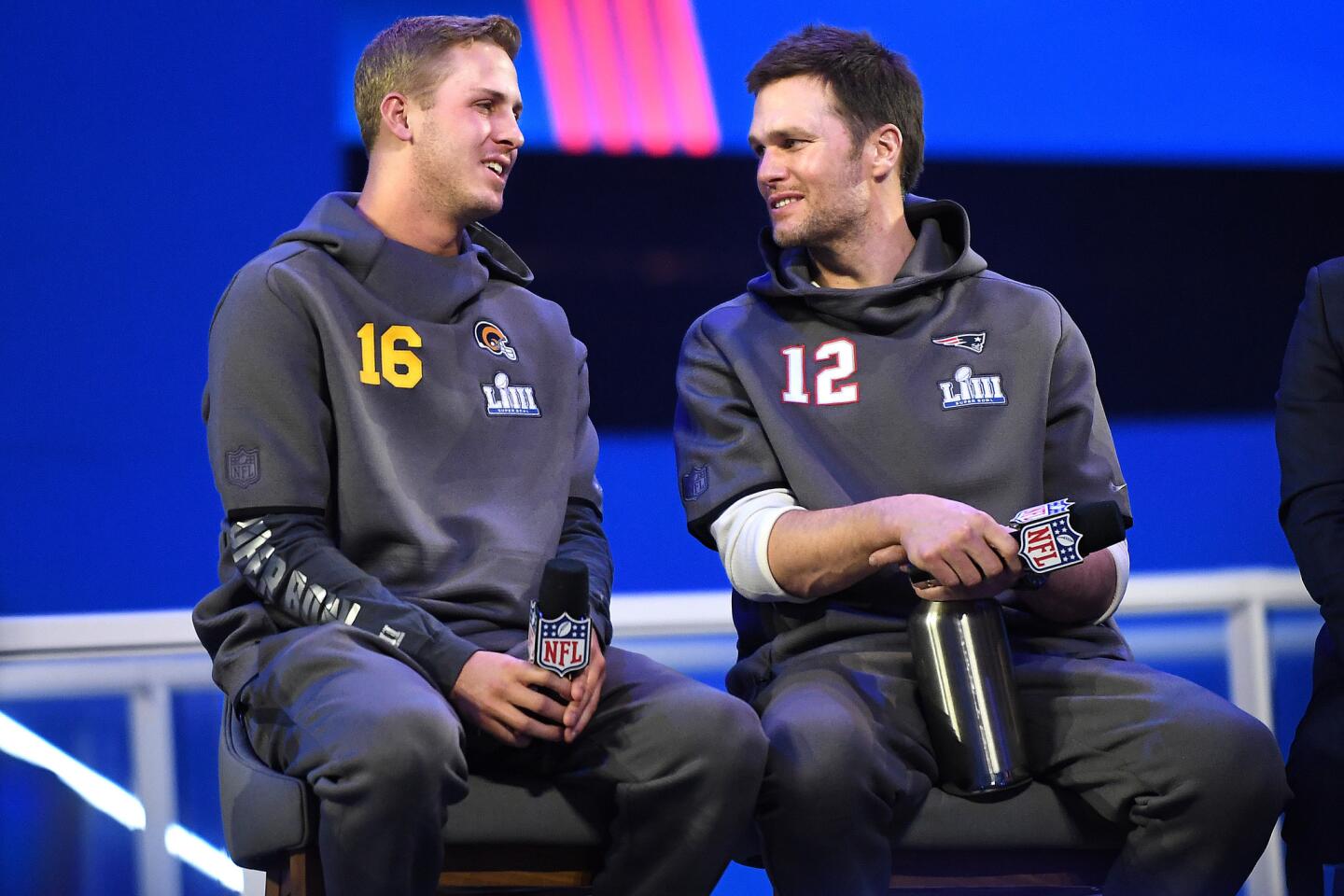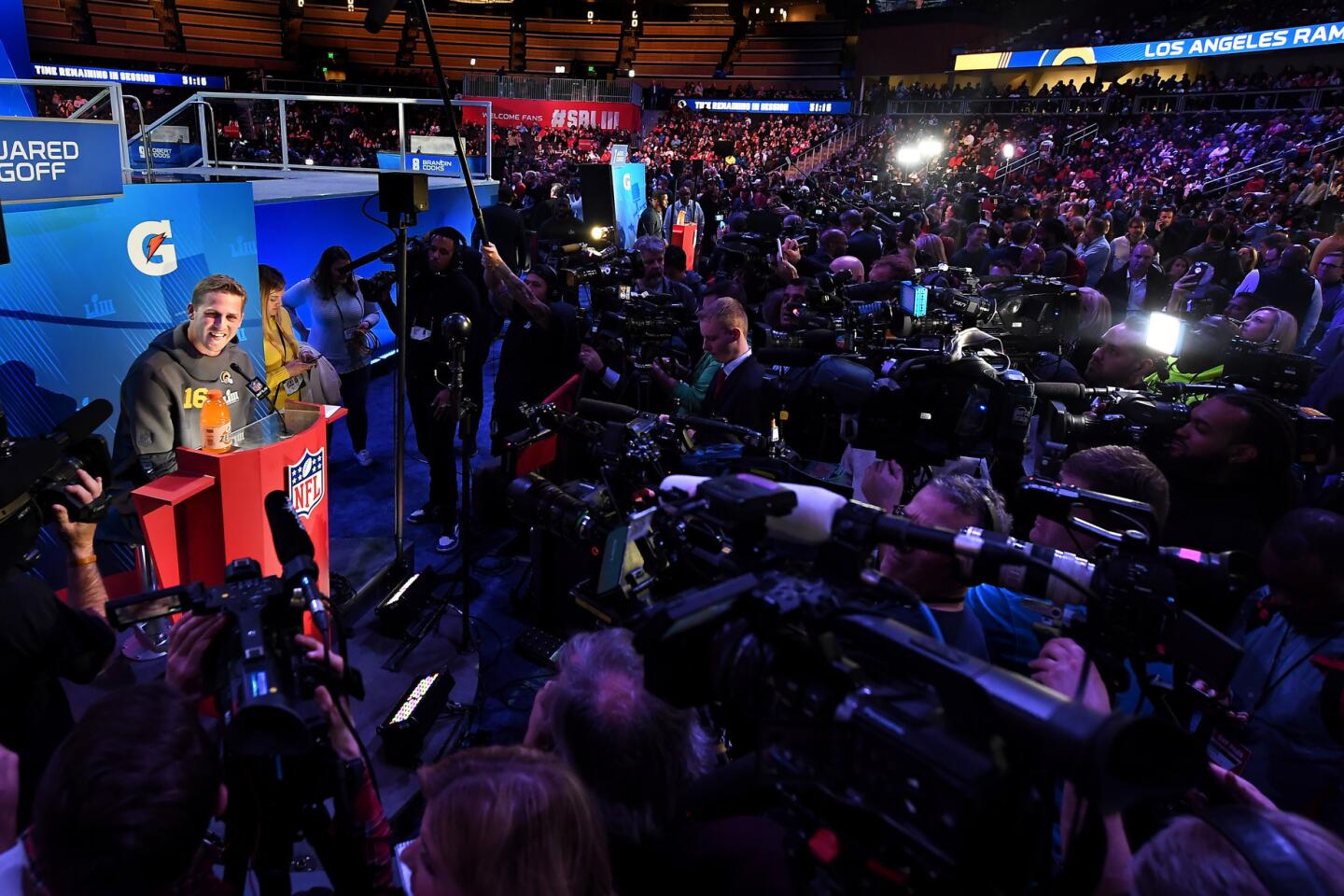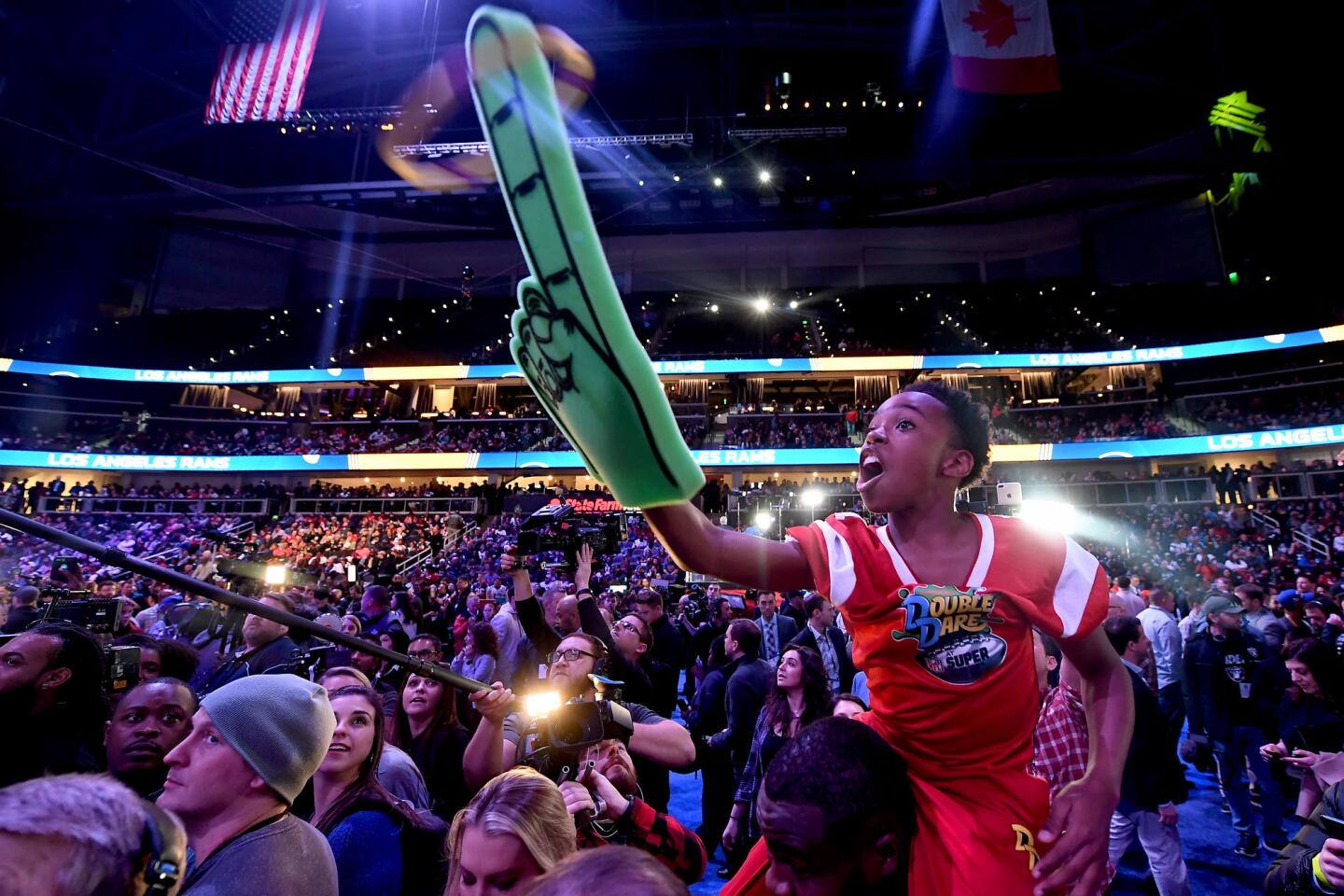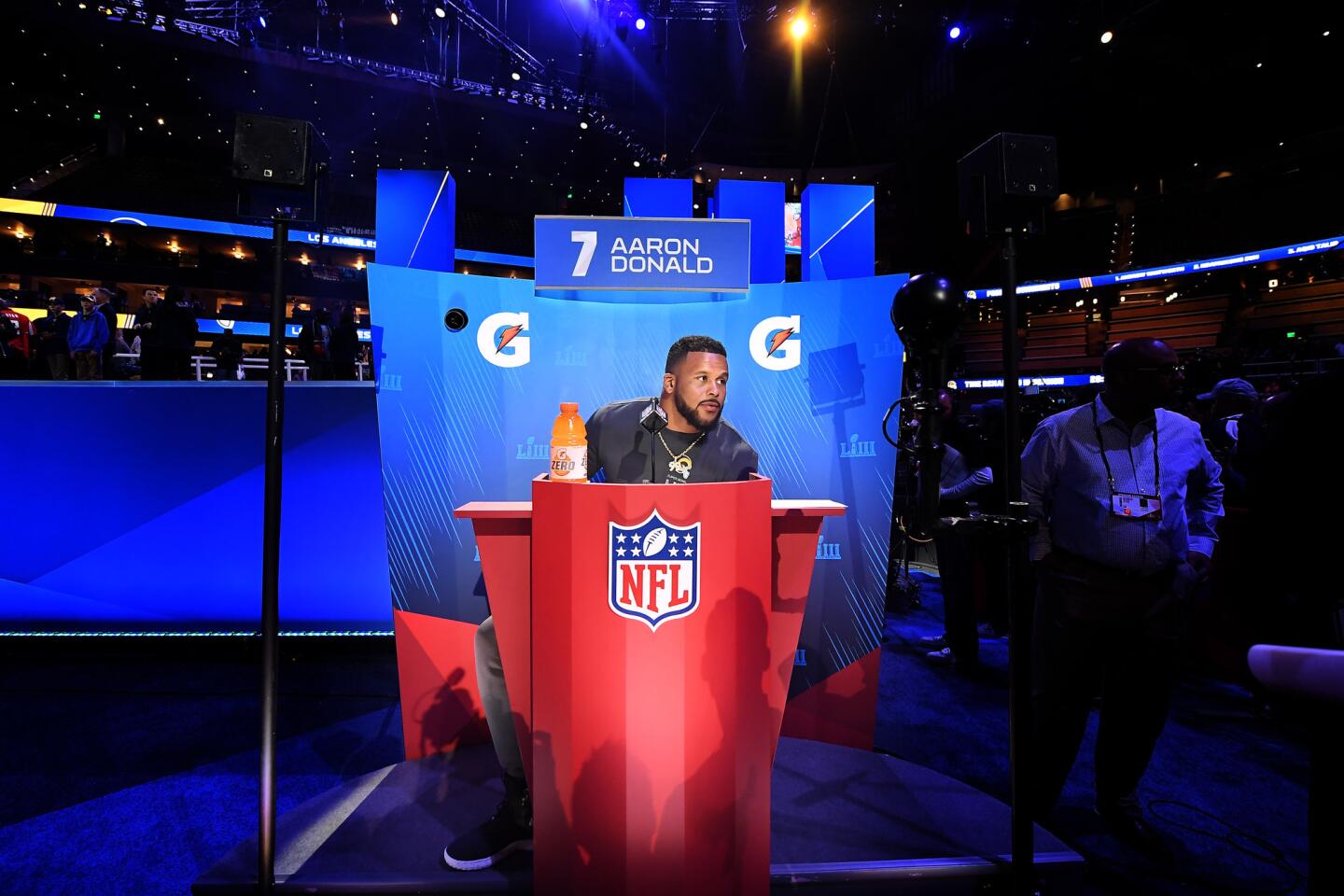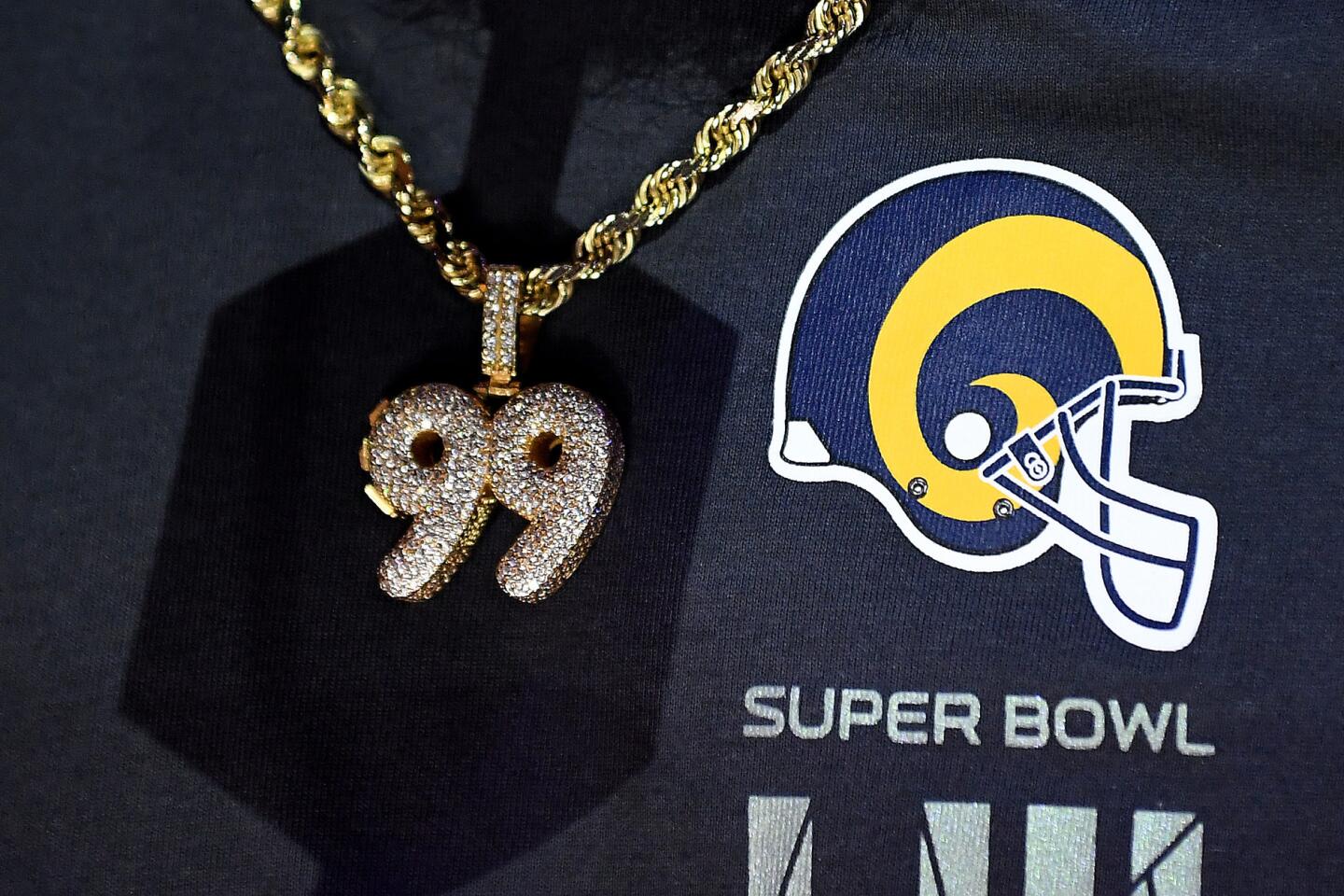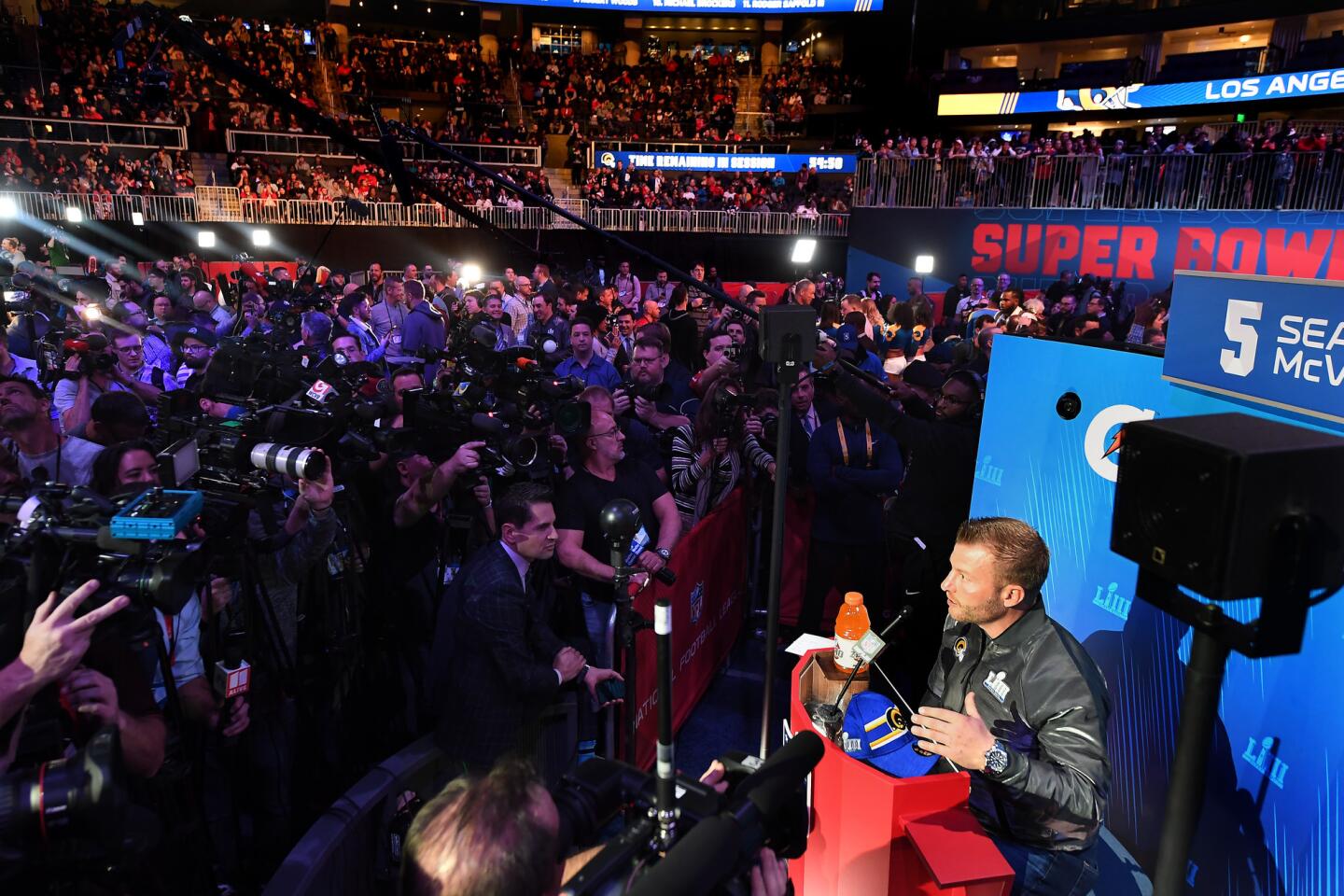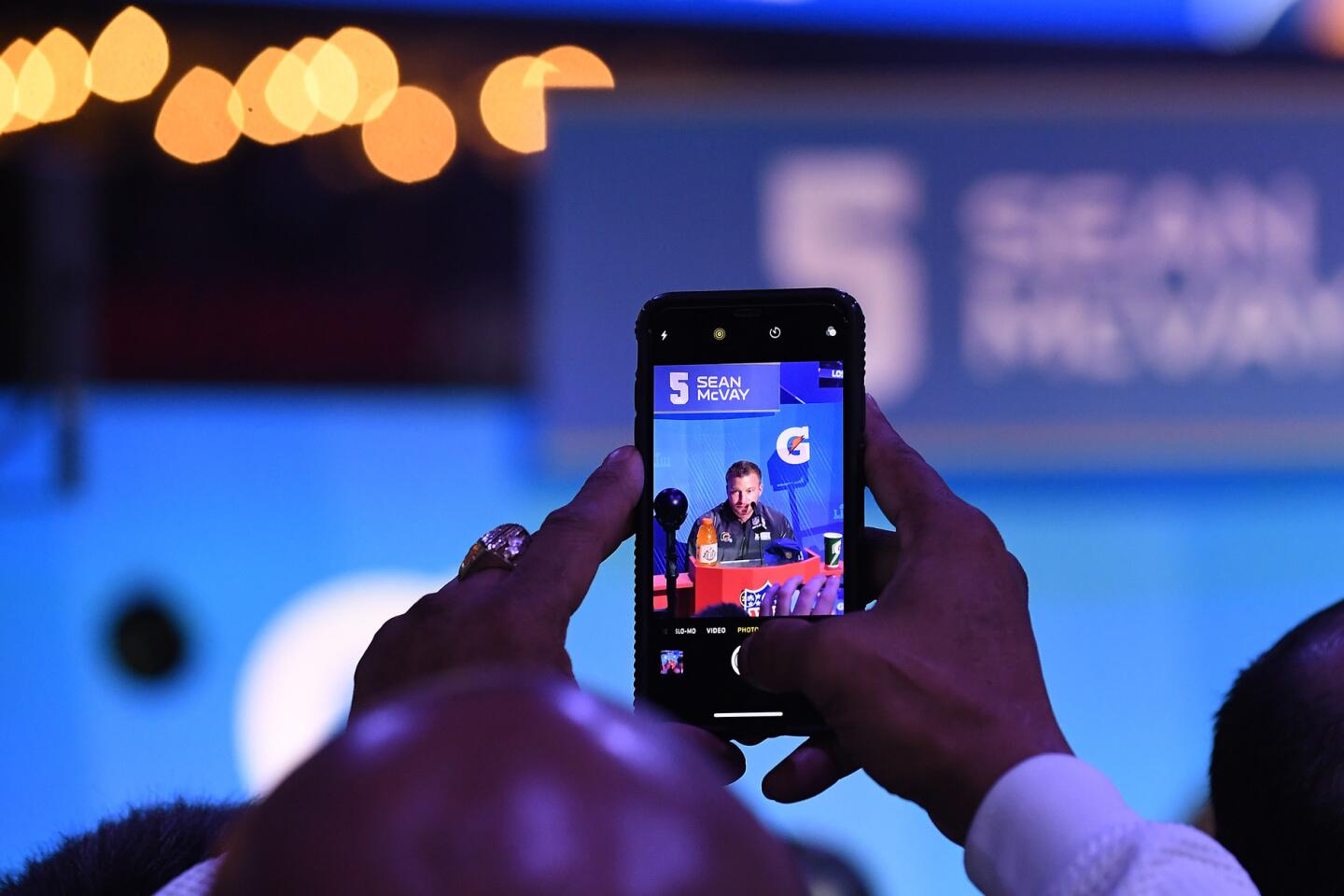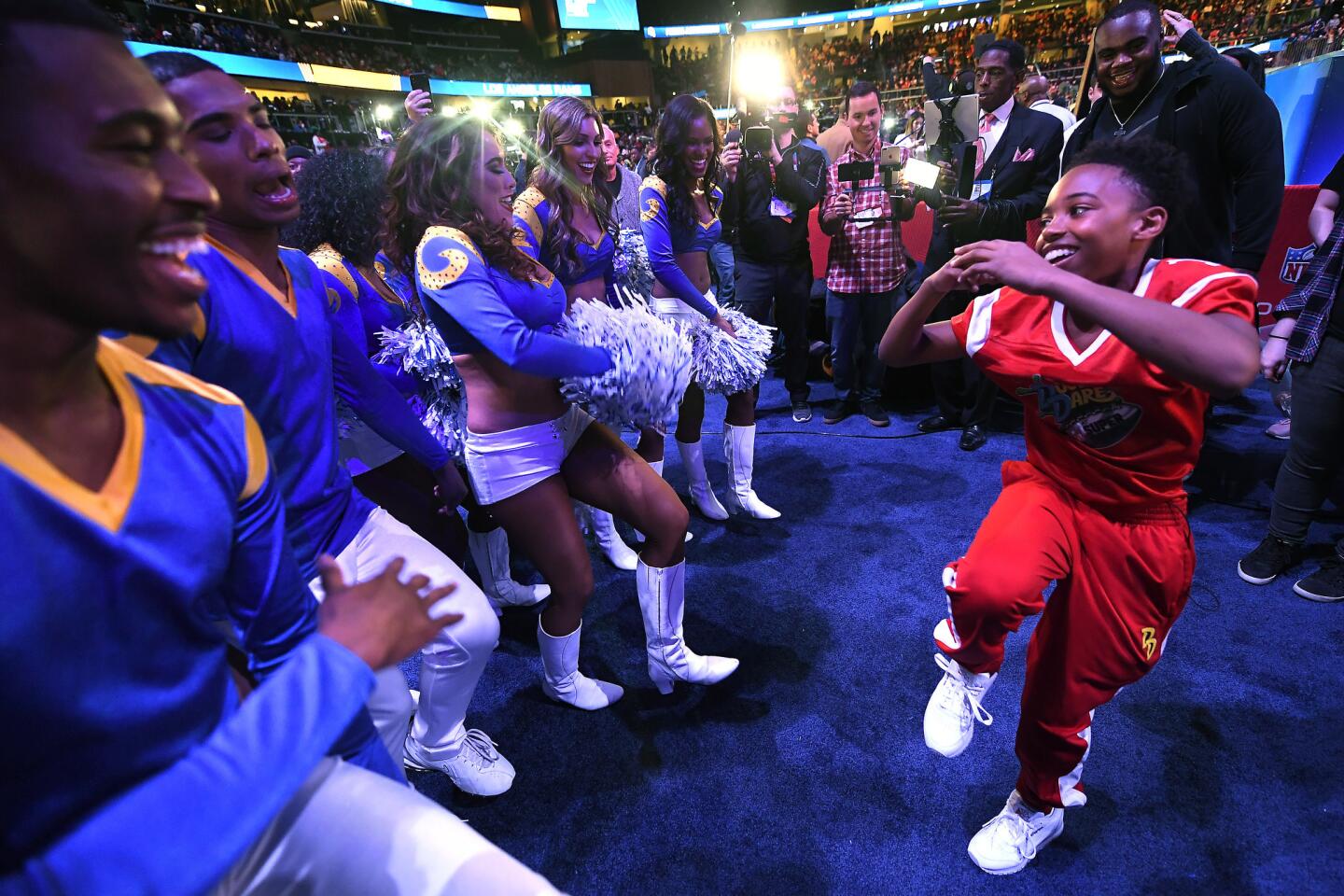Column: The Super Bowl didn’t make L.A. a football town. The Rams had already done that
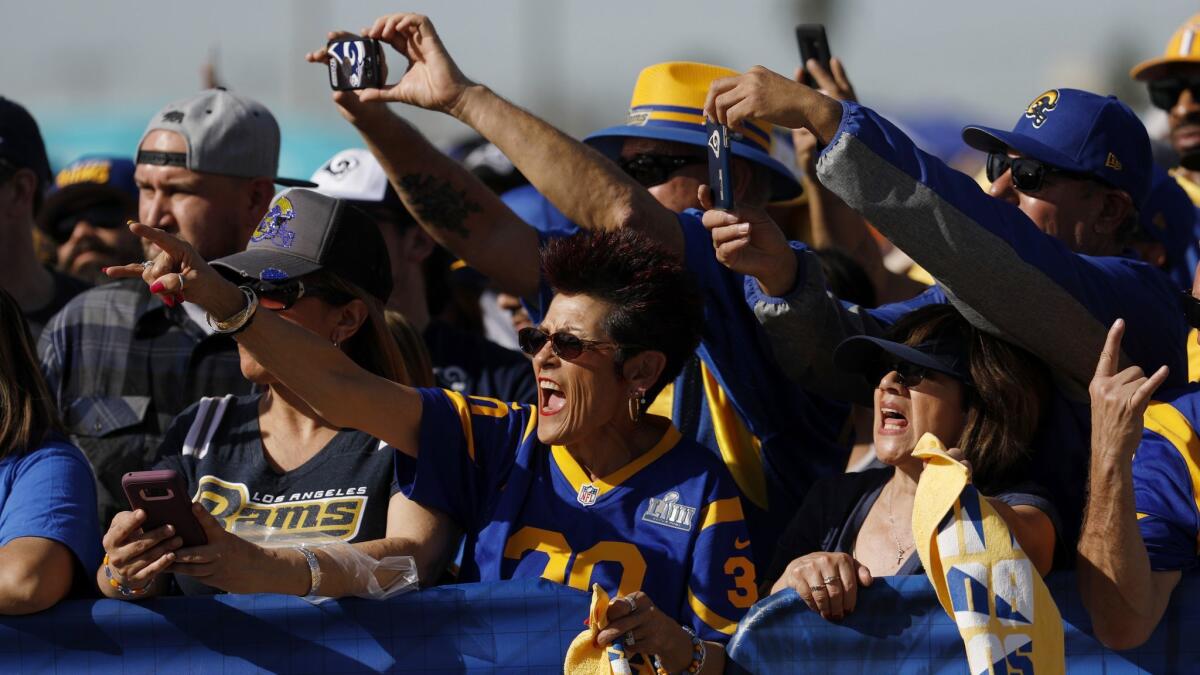
- Share via
Reporting from atlanta — What do you say to people who say that Los Angeles is not a football town?
Aaron Donald smiled.
“It’s a football town now,” the Rams defensive tackle replied.
In this exchange Monday at Super Bowl opening night, the question said more than the answer.
On this stage, the national stage, the stereotypes about Los Angeles remain established truths — in this particular case, about how the city remains apathetic about the Rams and their participation in the upcoming Super Bowl.
Casual observations would support this view. In every part of the Los Angeles metropolitan area, from Pasadena to the Westside, it’s not as if there are suddenly Rams caps and jerseys everywhere. People aren’t walking around town with watermelons on their heads.
Only to mistake this as indifference would be to misunderstand the place. This isn’t Green Bay. This isn’t even Boston. Los Angeles is too expansive, too populated and too diverse to turn entirely one color except in the rarest of circumstances.
But the city has passion.
Real passion.

Super Bowl week kicked off with Opening Night featuring the Los Angeles Rams, the New England Patriots and a few thousand media members and fans inside State Farm Arena in Atlanta.
That came into focus in Week 11. The Rams were scheduled to play the Kansas City Chiefs in Mexico City, only for substandard field conditions to force the game to be moved to the Coliseum.
“We had five days to sell a game where we had zero tickets sold,” said Kevin Demoff, the team’s chief operating officer.
The attendance: 77,002 fans.
“Without visiting team fans,” Demoff pointed out. “All L.A.”
Demoff mentioned the team’s promising television ratings, including the Rams’ victory over the New Orleans Saints in the NFC championship game.
The team’s average home attendance in the regular season was more than 72,000 fans.
“Every metric we have is unbelievably positive,” Demoff said.
Including some that point to an underreported case of Super Bowl fever in Los Angeles.
The Rams have sold more than $3 million in merchandise online in the last week, according to Demoff. A team pop-up shop in Century City sold out of jerseys.
“We are well on our way, but I don’t think we ever thought we would open up our doors and it would be permanent euphoria,” Demoff said.
“There was a sugar high in 2016, when the NFL came back. The difference now in 2018 is that we have Rams fans. That’s what the market has become, as opposed to just the-NFL-is-back fans.”
The players have noticed the shift. More specifically, they have heard it.
“I forgot which game it was last year, but it was 50-50 in the crowd,” receiver Robert Woods said. “You felt their fans. You felt our fans.”
And this season?
“The Rams fans turned out,” Woods said. “No matter who showed up in our stadium, the Rams fans, they dominated.”
So the Rams weren’t surprised by the reception they received Sunday at the site of their future stadium in Inglewood where thousands of fans packed the area to send them off to the Super Bowl.
“For us to have that showing the other day was special,” receiver Brandin Cooks said.
That support was earned, a credit to the team’s 11 regular-season victories last season and 13 this season.
“Obviously, the more you win, the more they’re going to support you,” running back Todd Gurley said.
Demoff was especially proud of how the franchise became a symbol of strength for Southern California in the wake of the Borderline shooting and Woosley Fire, both of which were near the team headquarters in Thousand Oaks.
“I truly do look at this past November and what happened around the fires and the shooting and our power to bring an entire market together in a meaningful way as just as impactful as this run now,” Demoff said.
In terms of rebuilding their brand in Los Angeles following their relocation from St. Louis, the Rams are ahead of schedule.
Sign up for our daily sports newsletter »
“All of this is without what [owner Stan Kroenke] is building in Inglewood as truly the backbone of our organization,” Demoff said. “They thought you’ll have a honeymoon in 2016 and then you’ll have another honeymoon when the stadium opens and that will be that. Clearly, we’re fortunate enough with the great start in 2016. Now we have this run here, which has invigorated people.”
Los Angeles doesn’t have to wait for the opening of the new stadium to become a football town.
Donald is right. It already is one, only finding it requires a search for the city within the city.
Follow Dylan Hernandez on Twitter @dylanohernandez
More to Read
Go beyond the scoreboard
Get the latest on L.A.'s teams in the daily Sports Report newsletter.
You may occasionally receive promotional content from the Los Angeles Times.

